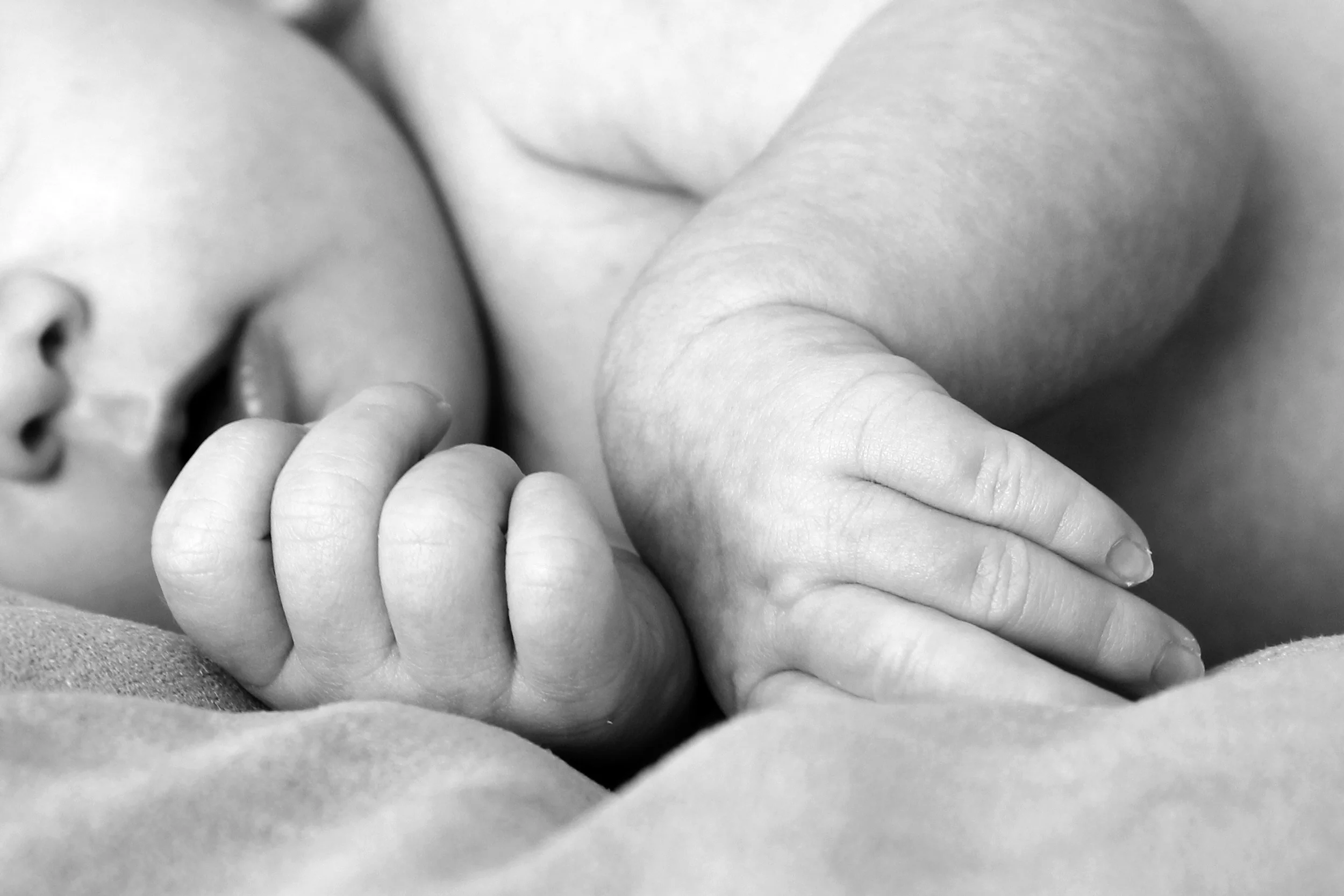Babies undergo many biological changes in the first few months of life, which makes some parts of sleep training difficult or impossible to implement before about four months. However, there’s still a lot you can do to establish a healthy sleep foundation for your littlest ones.
0-6 weeks
For the first 6-8 weeks of your baby’s life, his sleep is pretty unorganized. He might sleep more during the day than he does at night, and it may prove difficult to recognize or establish any kind of sleeping patterns or schedules for him. Your tiny little babe just doesn’t have the well-developed circadian rhythm that adults (or even older babies!) have.
The good news is that during this time, you don’t have to worry about creating bad habits in your baby, so you can do whatever feels right to you to get him to sleep. You can nurse or rock him to sleep, baby-wear, or let him sleep in some sort of infant swing. Do whatever works to get sleep for both baby and YOU! Perhaps try laying baby down for a nap once each day (more if it’s working for you both!) to give him some exposure to his crib or bassinet, but don’t stress if he’s not quite ready for that. Remember that baby needs a lot of sleep during these first few weeks – about 16-18 hours per day – so even though he’s suuuuper cute, don’t try keeping him up too long! As little as 30-45 minutes of awake time between naps is usually sufficient for very young babies.
As far as organizing those days and nights, be sure to expose your baby to sunlight during his daytime awake time, and keep things dark and calm during his night feedings. At this young age, you can even let him nap with natural sunlight coming through the window – just make sure it’s not directly in his eyes.
Additionally, if he’s taking his long sleeps during the day rather than the night, I recommend waking him up from naps after 3 hours. But at night, let him sleep as long as he’ll sleep (unless otherwise specified by your pediatrician).
6-16 weeks
The unorganized sleep won’t last forever, though! By 6-8 weeks old (remember to adjust the age according to due date), your baby will start to organize his sleep a bit better. His bedtime will get a little earlier – like 9pm instead of 11pm – and you may start getting a 4-6+ hour stretch of sleep in the night if you’ve worked on independent sleep. Around this time, your baby will start smiling at you – not those gassy or random smiles, but smiles because he knows your face and he loves your face! This is a huge milestone for your baby, not just because you can finally enjoy those sweet smiles regularly, but because it means he can follow cues and make connections. If you haven’t started working on establishing a healthy sleep foundation yet, this is a great time to begin. (But if you wish to start working on these things earlier, you can do so from day 1! Just do what you’re comfortable with, and take cues from your baby.)
Healthy Sleep Foundation
First, establish a consistent sleeping place. Whereas you may have been mostly letting your baby sleep in his car seat, the infant swing, or in a baby carrier before, now is a good time to start doing the majority of naps in his crib and/or bassinet. If you consistently place him in his crib for sleeping, he’ll learn that crib time is sleeping time.
Second, start using a consistent soothing routine before each nap and before bed (naptime routine should be a shortened version of the bedtime routine). My personal bedtime routine that I’ve used for my daughter’s whole life (she’s 17 months) is to change her diaper/put on jammies, read her one short book, say prayers, and then sing her a song while I wrap her up (she was swaddled until 6 months, and now she uses a sleep sack). Our naptime routine is one short book before singing and wrapping her up. Remember that with whatever routine you decide on, you’re just letting your baby know it’s time to relax and go to sleep. You’re not fully soothing your baby to sleep because he needs to learn to fall asleep by himself.
Finally, begin giving your baby the opportunity to self-soothe. You’ve set the stage with a consistent sleeping place and soothing routine, so now allow your baby the chance to settle himself to sleep. However, in order for your baby to be able to soothe himself to sleep, you must time things right. Watch for sleepy cues like zoning out, red eyebrows, or turning his head away, and when you see them, begin your soothing routine. At 8 weeks old, your baby will likely exhibit these sleepy cues after only 45-60 minutes of awake time. If baby is pulling his ears, rubbing his eyes, or yawning, don’t delay! He’ll quickly move from these signs (tired) to overtired, which will make him very difficult to get down.
16+ weeks
Around four months of age, your baby goes through more biological changes that help his sleep become even more organized – if you follow his biological needs. This is often called the 4-month regression, but it doesn’t have to be a bad thing; baby simply has some changing sleep needs. His bedtime will again get earlier, now between 5pm and 8pm, and he’ll need more structure surrounding sleep (those healthy sleep foundation items above) if he doesn’t yet have it. If you work to establish a healthy sleep foundation early on, you will probably have a pretty smooth transition through this “4-month regression” and baby will soon be ready for a more predictable napping schedule.
And if you don’t have a smooth transition, well, that’s what I’m here for!
Happy sleeping! :)


